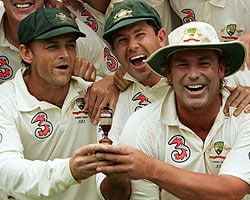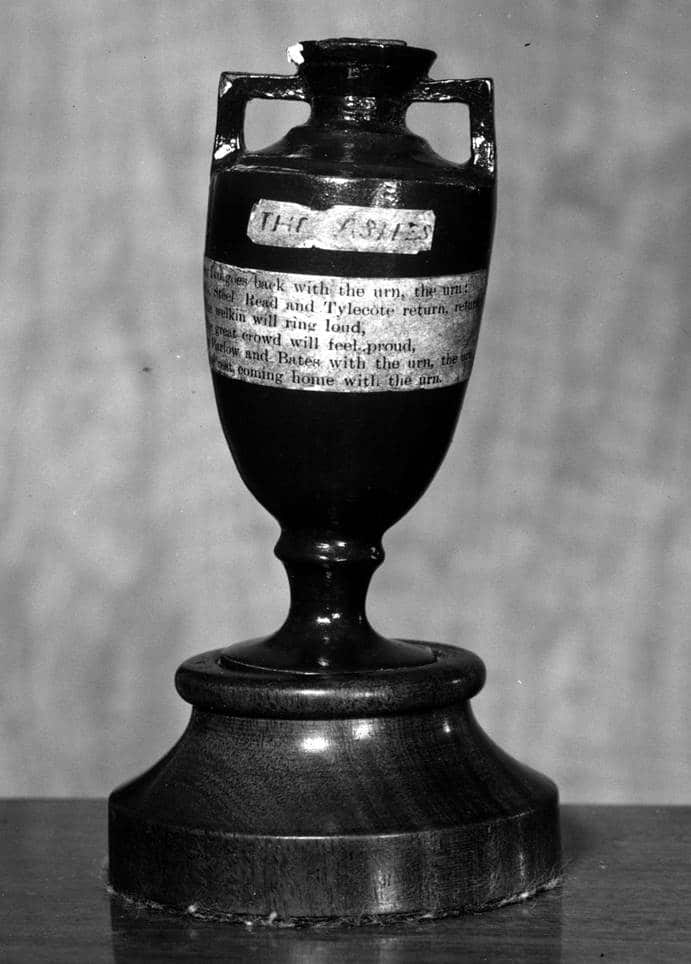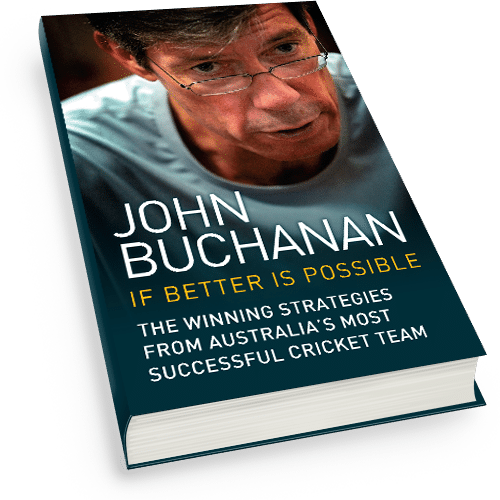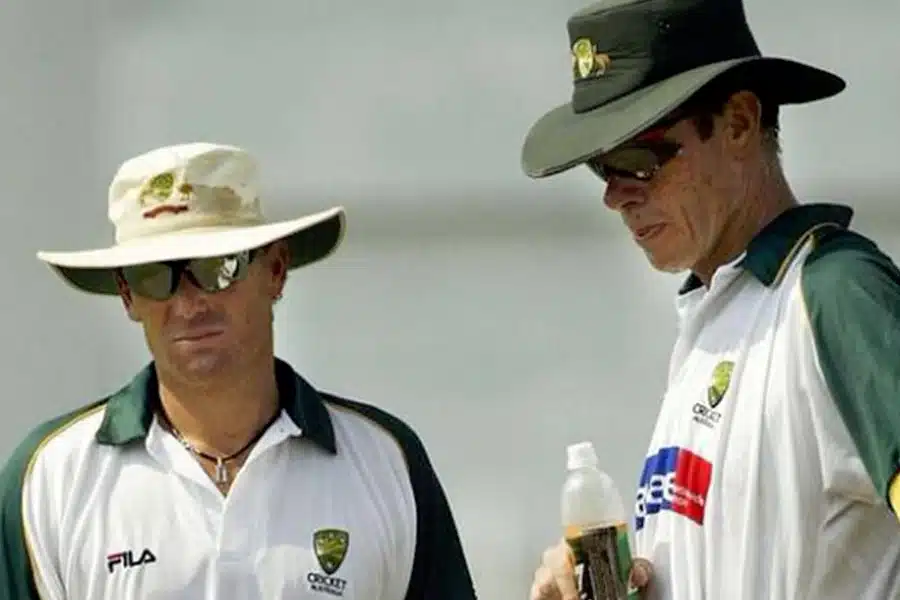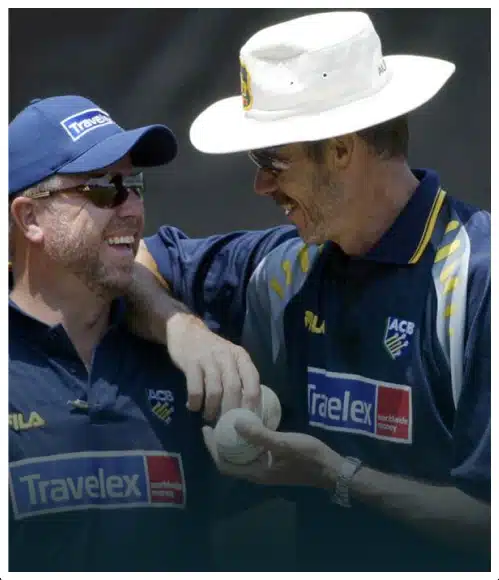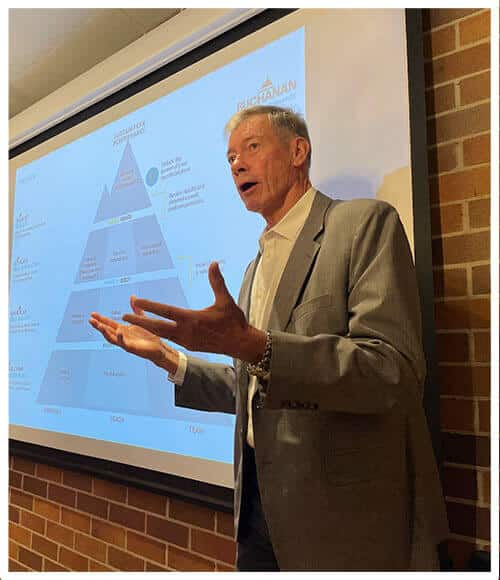What Business can learn cricket.
I was recently asked a series of questions about the significance of The Ashes. I coached the last Australian team to win in England in 2001. I coached a further 3 Ashes contests winning at home in 2003-04, losing a remarkable series in 2005, and then setting the record straight with a 5-0 whitewash at home in 2006-07.
How does an Ashes series differ from a ‘usual’ Test series?
The first test between these countries was played in Melbourne March 15-19, 1877.
Test history shows Australia has won more Ashes Tests than England, winning 140 of the 340 matches, compared to England’s 108 victories. Australia also holds the edge in Ashes series won, having won on 34 occasions compared to England’s 32. List of Ashes series – Wikipedia
The names, the matches pre-WW1 then post; Bradman; Bodyline; 1948; Laker 19wkts; Barrington’s record; Lord Ted; Illingworth-Snow; Thomson-Lillee; Chappell brothers; Walters-Willis Perth; Botham-Border; 2001 last Ashes win away; 2005 series; Warne-McGrath; Symonds 100 Melbourne; and the list goes on to the current day. If you asked any number of people they would come up with incredible events and memories that have shaped their thoughts and views on Ashes cricket.
I played backyard cricket with mates from school from the age of 11, scoring with an ABC cricket book, selecting England and Australian names drawn from a hat, and creating incredible Test matches.
I listened on an old radio at night tucked up in bed to the 1961 tour to England as an 8yr old!
So why is it different you ask?
It is different because it has always been Australia wanting to show its ‘motherland’ that we can play sport, in this case cricket better than England, The Poms.
I have just finished reading Tom Wills updated edition by Greg de Moore, where the beginnings of the England v Australia rivalry was building with a Grace led English team visit to the colonies in 1871. In fact Lillywhite and Southerton who played in the 1st ever Test were part of this trip.
Did your approach change for an Ashes series?
In many respects no it did not change. In fact, that was always the approach. No matter what the game, how ‘big’, or whether against less highly rated opposition, it was always about preparing ourselves to be the best possible team, and then executing our best possible game.
Having said that though, there are always many external influences outside the control of the team. The media along with the public build huge expectations on an Ashes series. So this becomes one of those factors that as a coach, as a playing group, there needs to be an acknowledgement of the hype that is around and that it will build through the series. Having accepted this will happen and is totally beyond the control of the team, it is back to the business of preparing individually and collectively for the series, and most importantly the next game.
Do you feel the weight of expectation weighing on your shoulders?
Partly answered above.
There are external expectations which are ‘in your face’ every day of a series.
However, if I as a coach, or any of the players feel they need to shoulder extra responsibility, carry the load of a nation – then we are in trouble.
2005 I felt this as coach. There were certainly other internal factors to the team that were affecting our performance, but I felt the weight of the English public.
Consequently, I did not coach near my best, and I think this was the case for some of the players not being at their best either. But where it had its greatest impact I believe, was our team culture. It was fragile and fragmented for the entire Test series. Culture is such an intangible element in team performance. However, if team bonds are strong and visible, then it is a positive force than can help deal with adversity, can pull the team and individuals in the team through difficult times.
How proud are you to have been involved in perhaps the greatest Test series in history (from an English perspective anyway!)
In hindsight, it was an exciting, entertaining and important series for Test cricket as a whole. It brought the crowds to the games and others who could not attend found any other means from which they could follow the series.
At the time, as I mentioned above, it was a low point of my coaching career. I was caught up with the emotions of winning and losing. In fact I was riding a roller-coaster of emotions almost every hour, every session, every day, every Test.
It was a major learning experience for me which was of immense benefit for the remainder of my time as head coach of the team.
It was a major learning experience for me which was of immense benefit for the remainder of my time as head coach of the team.
How important will the more experienced players on both sides be this summer?
As someone said, “Good judgement comes from experience, and often experience comes from bad judgement”. There is little doubt in a contest that promises to be competitively highly testing; that promises plenty of twists and turns; that has huge buildup and public expectation; and that has a home team brimming with newfound confidence and bravado, experience is going to play a significant role. Talent will be on show, but talent without good judgement leads to errors at crucial moments. Root and Smith standout for me as the key leaders within the batting groups that will allow the talent to blossom. Anderson, Broad, Cummins, Hazelwood and Lyons are the experienced heads who will lead the bowling attacks against potentially, very good batting lineups. And then there is the leadership of Cummins and Stokes. Cummins will be tested due to his load as a key strike bowler. Add the physical demand of 6 Tests in a row including the WTC v India to the demands of captaining the side onfield and dealing with all offield requirements – a huge ask! Stokes has the weight of England riding with him and his team. This can be a huge plus as it was for Michael Vaughn and his 2005 team. It can be a massive storm cloud as it was for Nasser Hussain in 2001.
Could this series be as good as the one in 2005?
It could very well be. It is certainly too hard to predict. It would seem one outcome that is more predictable when comparing 2005 to 2023 is that a 2-1 result with 2 draws would not seem likely the way both teams play. It is hard to foresee a draw, unless there is significant bad weather. So with every Test promising a result, it means both teams are in The Ashes till one team has 3 wins. Like all series though, the 1st Test is critical. If England can take a win, then there is huge momentum into the next Test. If Australia can secure a win as we did in 2005, then there will be doubts in the English camp, fuelled by a public that has been fed on recent successes and a media that I think is still unsure of the so-called ‘Bazball approach’.
Were Australia playing Bazball under you? Or certainly an equivalent of it?
No, I do not believe so. Our mantra was to ‘change the way the game was being played’, or as Stephen Waugh phrased it, ‘take the road less travelled’. But we were not governed by taking high risk. We took risk but it was calculated. If the late Shane Warne had been captain, then I think you would have seen a very different Australian approach. But with Stephen, Ricky Ponting and myself, I think we were more conservative in our approach to how to win, and how to win sustainably.
In McCullum and Stokes I see leaders who like to ‘roll the dice’. I am by no means saying this is wrong as their results show. I think it has been an injection that Test cricket has needed. It has people talking about how England are playing Test cricket and could this be the way of the future. High risk can bring high reward. The flip side is that it can go horribly wrong, particularly if the environment is not suited to this approach. It is Australia’s task to create a 2023 Ashes environment where high risk is not the right approach and therefore leaves England quite vulnerable.
In order to do so, One of Australia’s key strategies will be to bat a long time, preferably in its first innings. So this means, if England continue to bat a furious pace, then Australia will be batting when the wickets are at their best. It also means over the course of 5 Tests back-to-back, England’s old war horse bowlers will be physically tested.
From this interview, insights for business and business leaders are –
1. If there is history and traditions in your business, then do not overlook them as it will help build a stronger purpose and culture
2. No matter how well, not well or what the market is doing, clearly understand the Processes and Systems within your business that have produced results. While they can always be improved, this is your basic game plan for success.
3. Leaders need to be able to make good decisions on behalf of the business. This needs to be done as objectively as possible leaving emotions to one side.
4. Experience is very hard to replace although it can sometimes cause resistance to change.
Some Ashes data
#1 Home advantage is excellent for England under Brendon McCullum
Played 8, won 7
All 7 wins were high margin results for England
5 wkts win (2 matches)
7 wkts (1 match)
9 wkts (1 match)
10 wkts (1 match)
Win by inns (2 matches)
# 2 Team performance under the new coach/captain
Comparing the batting of both teams England has significantly higher % or higher numbers for –
- Balls scored from (Scoring rate, S/R)
- Boundaries
- 2/3s
- Runs per over (RPO)
- Balls per wicket (B/W)
- 6+ overs ( overs >= 6 runs)
And less
- Consecutive maidens bowled to them
- Less maidens bowled to them
But what is of interest is England v Australia’s bowling.
Without knowing for sure, I think England have been able to attack more with their bowling due to high scores, plus the desire to take wickets. So they have kept attacking fields for longer.
And it would seem teams have been dismissed quickly as a result.
But it does show that Australia’s bowling approach is far more economical, building pressure to take wickets, rather than a risk approach – sacrificing runs, maidens, economical overs (L3) in pursuit of taking wickets.
So I believe, herein lies the key to the Ashes –
Australian batsmen need to bat long in their first innings, time and runs. Be content with a 3-4 runs per over rate, but bat for 150+ overs.
The analysis being provided by Mr Krishna Tunga of Allthatcricket.com.au.
